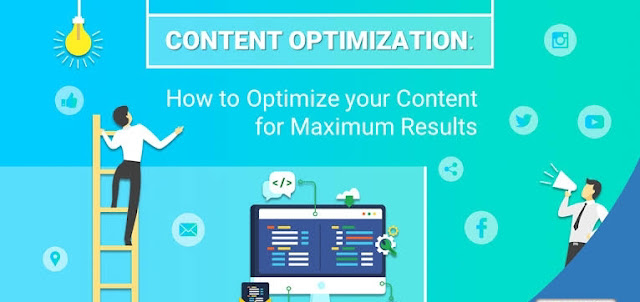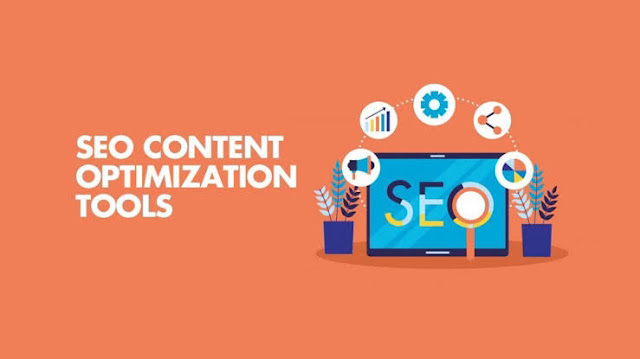Content Optimization
CONTENT OPTIMIZATION IN ON-PAGE SEO: Content optimization is an important aspect of on-page SEO as it helps search engines understand the relevance and quality of the content on your web page.
Tips of Improving Content Optimization
CONTENT OPTIMIZATION IN ON-PAGE SEO: The following are some tips for content optimization in on-page SEO:
- Target relevant keywords: Identify relevant and high-traffic keywords to target on your page. Use these keywords in the page title, meta description, header tags, and throughout the content.
- Create high-quality content: Ensure that the content on the page is high-quality, engaging, and provides value to the user. It should be well-written and free of errors.
- Use header tags: Use header tags (H1, H2, H3, etc.) to break up content and make it easier for readers and search engines to understand the page's structure.
- Write descriptive and engaging meta descriptions: Write a concise and compelling meta description that summarizes the content of the page and includes the targeted keyword.
- Use internal linking: Link to other relevant pages on your website to help users navigate and improve the site's overall structure.
- Optimize images: Optimize images by compressing them to reduce file size, using descriptive alt text, and including relevant keywords in file names and captions.
- Include related keywords: Use related keywords and phrases throughout the content to provide context and help search engines understand the topic of the page.
- Make content easy to read: Use short paragraphs, bullet points, and subheadings to make the content easy to read and skim.
- Update content regularly: Keep the content on the page fresh and up-to-date by updating it regularly.
Benefits of Content optimization in on page SEO
CONTENT OPTIMIZATION IN ON-PAGE SEO: Content optimization is important for on-page SEO because it helps to improve the relevance and quality of the content on your website, which can have several benefits, including:
- Improved search engine rankings: By optimizing your content for targeted keywords and using relevant meta descriptions, header tags, and internal links, search engines will have a better understanding of what your page is about, which can improve its rankings in search results.
- Increased organic traffic: When your page ranks higher in search results, it is more likely to be clicked on by users, which can result in increased organic traffic to your website.
- Better user engagement: By creating high-quality and engaging content, users are more likely to spend time on your website and engage with your content, which can help increase your website's authority and user loyalty.
- Improved conversion rates: When users engage with your content, they are more likely to take the desired action on your website, such as making a purchase, filling out a contact form, or signing up for a newsletter.
- Competitive advantage: By optimizing your content, you can stand out from competitors who may not be optimizing their content, which can give you a competitive advantage in search results.
Overall, content optimization is an important aspect of on-page SEO that can help improve your website's search engine rankings, drive more traffic to your website, increase user engagement, and ultimately lead to more conversions and business growth.
Content optimization checker tool
CONTENT OPTIMIZATION IN ON-PAGE SEO: There are many content optimization checker tools available online that can help you analyze and improve the content on your web pages. Some popular options include:
- Yoast SEO: A popular WordPress plugin that analyzes the content on your web page and provides suggestions for optimization, including keyword usage, internal linking, and readability.
- SEMrush: An all-in-one SEO tool that includes a content optimization feature. It analyzes your content and provides suggestions for optimization based on keyword usage, readability, and other factors.
- Ahrefs: A comprehensive SEO tool that includes a content explorer feature. It allows you to analyze the content on your web page and provides suggestions for optimization based on keyword usage, backlinks, and other factors.
- Grammarly: A writing assistant tool that checks your content for grammar, spelling, and punctuation errors, as well as provides suggestions for improving readability and engagement.
- Hemingway Editor: A writing tool that analyzes your content and provides suggestions for improving readability, sentence structure, and word choice.
These tools can be helpful in identifying areas of your content that need improvement and providing suggestions for optimization to help improve your on-page SEO.










0 Comments